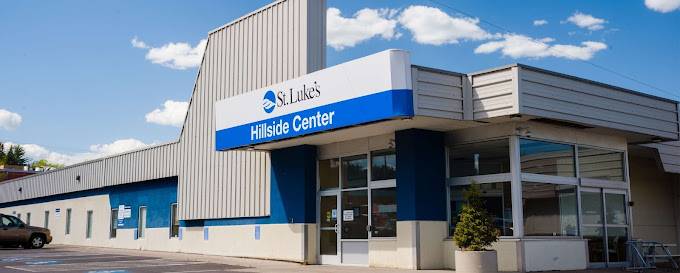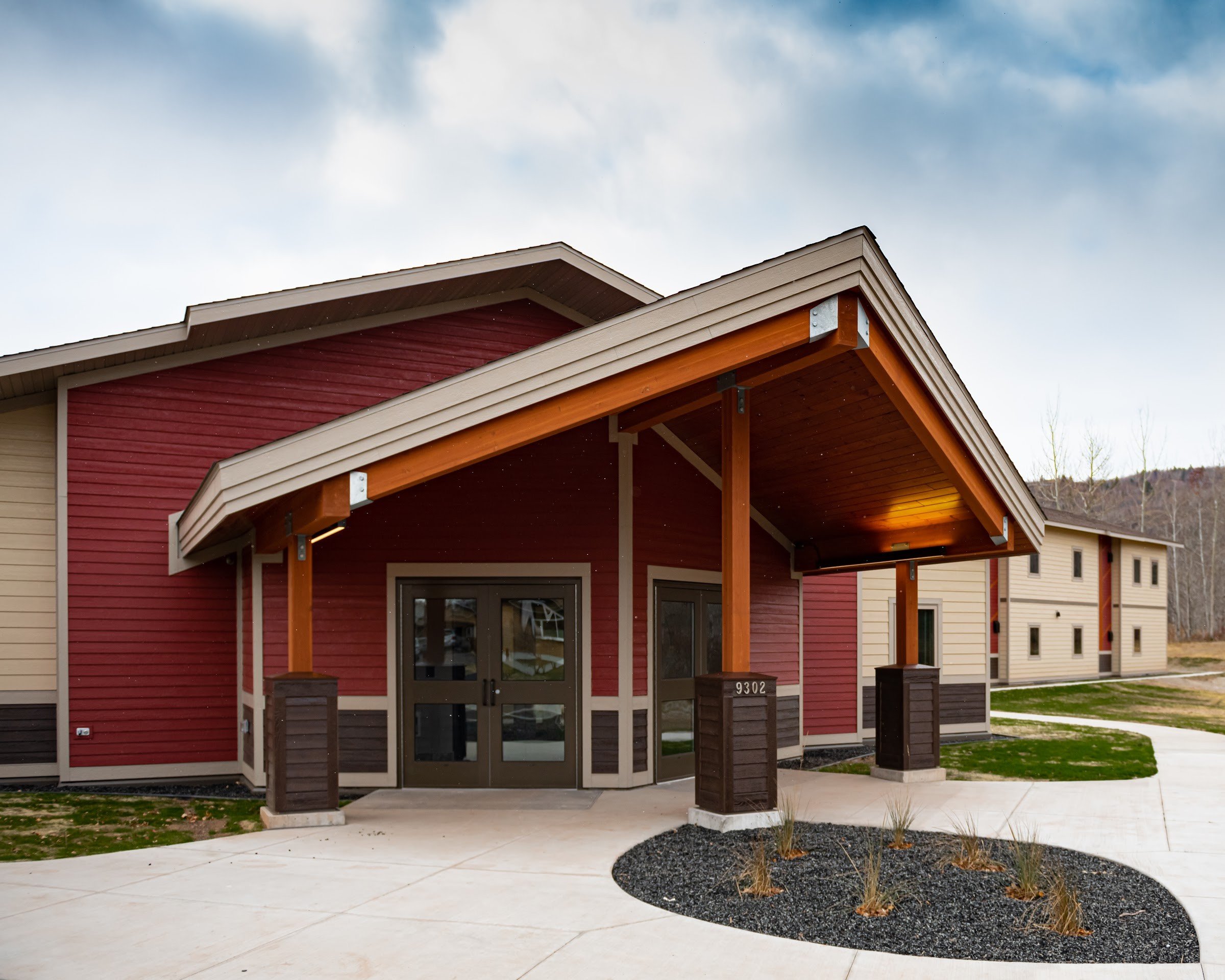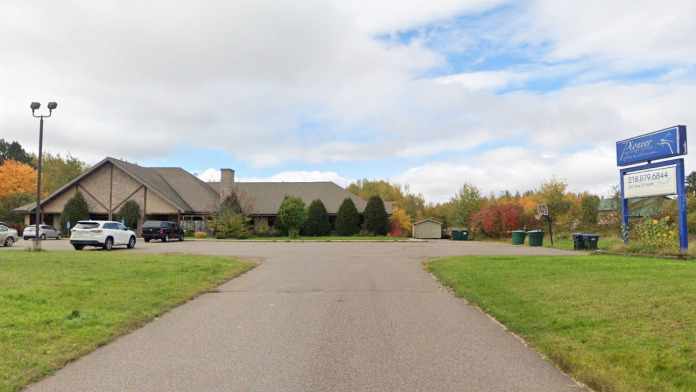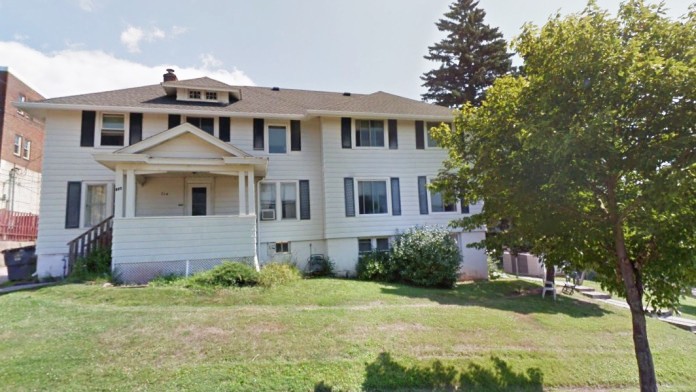I know they have an incredible program and that was why I decided to come. Nevertheless, I didn't like the fact that they choose who stays and who gets kicked out, and some of the people that leave really need to be there. I know they are working for a good cause, but they c ...
About Minnesota Adult & Teen Challenge – Duluth Campus
Minnesota Adult and Teen Challenge’s Duluth campus provides care to clients from northern Minnesota in a safe environment where you can heal and work through the root causes of your addiction. Duluth, Minnesota is a port city on Lake Superior known for its maritime history and stunning natural beauty. Duluth has a vibrant arts community and year round activities making it a popular destination and a fantastic place to begin your new life in recovery.
90 Day Residential Rehab
The residential treatment at the Duluth campus is a 90 day program for men using a four level faith based recovery program. While in the residential program, men have access to licensed mental health services too and there are telehealth outpatient options for men and women.
The residential treatment option may be the first step you take toward a changed and healthy life. The supportive and qualified staff are either licensed clinicians or past patients who understand exactly what you’re going through.
During your 45 to 90 day program, you’ll receive evidence based and trauma informed treatment with licensed therapists who are trained in treating addiction and co-occurring mental health disorders. The program provides a safe, supportive, and healing environment staffed 24/7. Your program will have a full-time schedule of therapy sessions, psychoeducation, therapeutic outings, and life skills groups.
Customized Treatment for You and Your Family
If you have opioid use disorder, this treatment center offers a specialized opioid treatment program to address the unique needs of opioid addiction. Your program will integrate evidence based practices such as cognitive behavioral therapy with mental and chemical health services. There is a faith based track or secular treatment options.
Their holistic approach will address your physical, emotional and spiritual needs within individual and group counseling sessions. They also recognize that your addiction has affected your family unit as well. Family education and family therapy are available to help you return to a supportive environment.
Latest Reviews
We are so happy to hear that you had this positive experience with MnTC! We are thankful to be a part of your healing journey.
We apologize for your negative experience with MnTC. Our mission is to provide a safe environment for all of our clients to heal on their journey to recovery.
Effective communication with our clients is a top priority for us, which is why we have announcement bulletin boards and use our live speaker system. With two buildings and seven floors, communication can be challenging, but we are always working to improve this.
All clients in our program are expected to participate in basic chores, but we do offer volunteer opportunities for work studies. These work studies are in no way required and are available to our clients who want to learn these manual labor skills.
We utilize an effective consequence management system to address client concerns and behaviors. However, not every incident is addressed in the same way.
Our Recovery Coaches are encouraged to participate in sports, outings, events, and eat lunch with our clients when possible. Not only is this part of their supervision, but it also provides an opportunity for relationship building with our clients.
The health and safety of our clients is a top priority for MnTC. For this reason, all of our staff members are trained in emergency preparedness in the case of a medical emergency.
We, like many nonprofits, occasionally receive donations from the local food bank. There are times when the donations we receive are past their sell by date. This is not their date to be safely consumed. The food we do receive from the food bank is extra food that our clients can choose to consume or not to consume. We never serve unsafe food and have consistently receive very high grades on our health inspections.
If you would like to report a specific incident, please call us at 612-373-3366. We are always looking for ways to improve the experience of our clients.
We apologize for your negative experience with MnTC. Being a part of the MnTC choir is one of the requirements for our long term program. While it may sound out of the ordinary, the majority of MnTC clients enjoy singing in the choir and find it to be important in their journey to recovery.
Rehab Score
Gallery
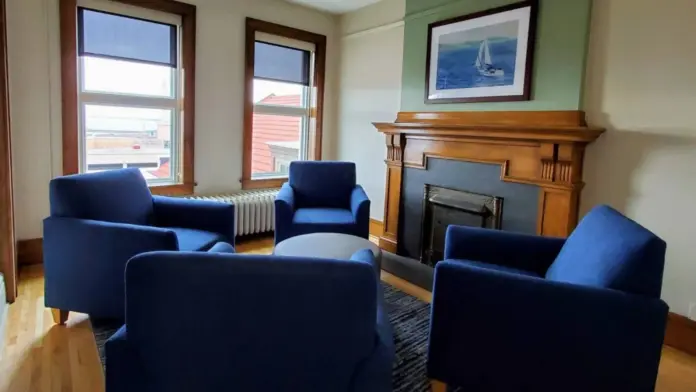
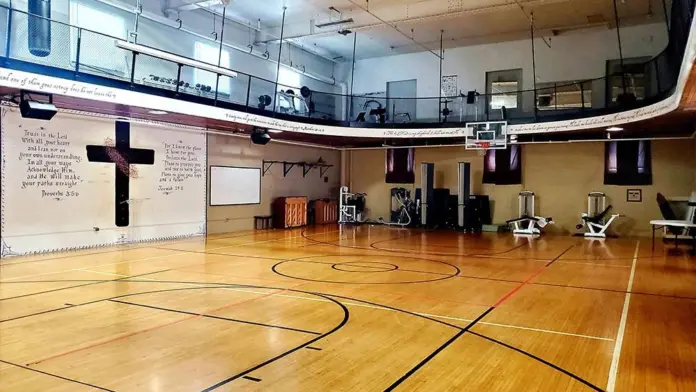
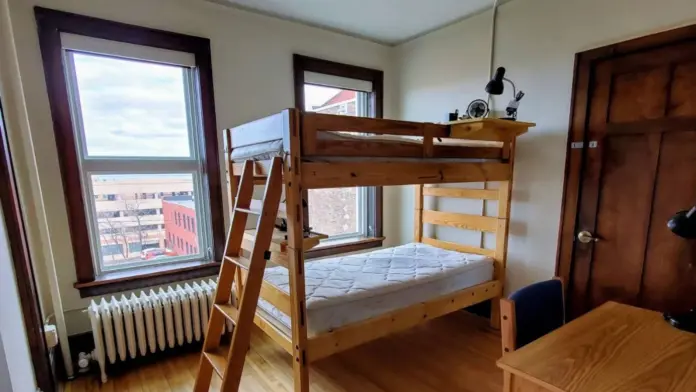
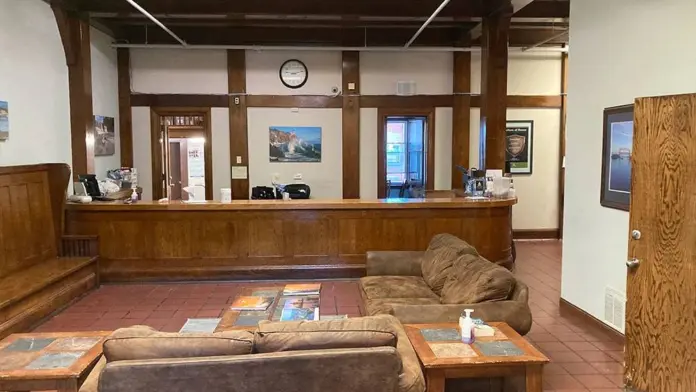
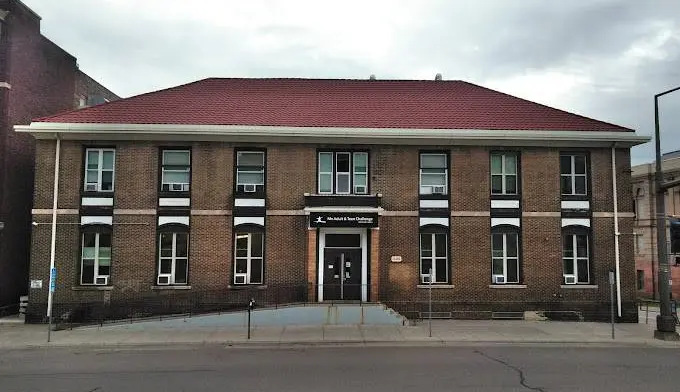
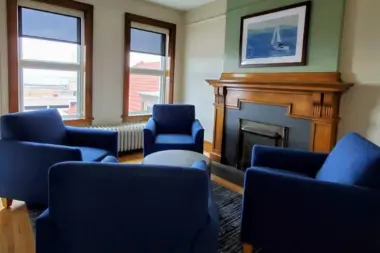
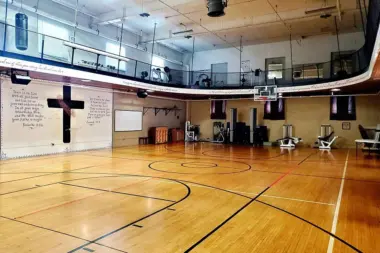
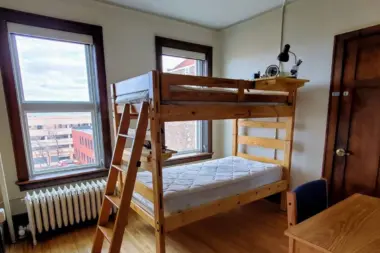
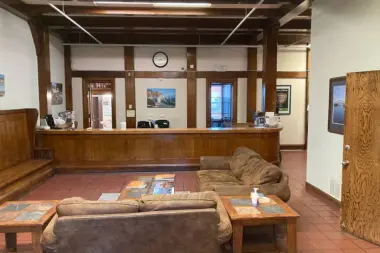
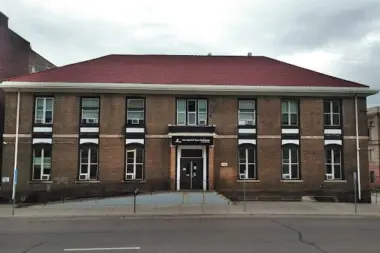
Accepted Insurance
Other Forms of Payment
Private insurance refers to any kind of healthcare coverage that isn't from the state or federal government. This includes individual and family plans offered by an employer or purchased from the Insurance Marketplace. Every plan will have different requirements and out of pocket costs so be sure to get the full details before you start treatment.
Self-pay involves paying for treatment out of your own pocket. You can use savings or credit, get a personal loan, or receive help from family and friends to fund your treatment. If you don't have insurance or your insurance plan doesn't cover a specific program, self-pay can help ensure you still get the care you need.
Financial aid can take many forms. Centers may have grants or scholarships available to clients who meet eligibility requirements. Programs that receive SAMHSA grants may have financial aid available for those who need treatment as well. Grants and scholarships can help you pai for treatment without having to repay.
Addiction Treatments
Levels of Care
Outpatient Programs (OP) are for those seeking mental rehab or drug rehab, but who also stay at home every night. The main difference between outpatient treatment (OP) and intensive outpatient treatment (IOP) lies in the amount of hours the patient spends at the facility. Most of the time an outpatient program is designed for someone who has completed an inpatient stay and is looking to continue their growth in recovery. Outpatient is not meant to be the starting point, it is commonly referred to as aftercare.
Treatments
The goal of treatment for alcoholism is abstinence. Those with poor social support, poor motivation, or psychiatric disorders tend to relapse within a few years of treatment. For these people, success is measured by longer periods of abstinence, reduced use of alcohol, better health, and improved social functioning. Recovery and Maintenance are usually based on 12 step programs and AA meetings.
Drug addiction is defined as an inability to stop using drugs even though it causes negative consequences in your life. Drug rehab in Minnesota provides treatment for drug addiction in a variety of settings including inpatient treatment and outpatient treatment.
A combined mental health and substance abuse rehab has the staff and resources available to handle individuals with both mental health and substance abuse issues. It can be challenging to determine where a specific symptom stems from (a mental health issue or an issue related to substance abuse), so mental health and substance abuse professionals are helpful in detangling symptoms and keeping treatment on track.
Opioid rehabs specialize in supporting those recovering from opioid addiction. They treat those suffering from addiction to illegal opioids like heroin, as well as prescription drugs like oxycodone. These centers typically combine both physical as well as mental and emotional support to help stop addiction. Physical support often includes medical detox and subsequent medical support (including medication), and mental support includes in-depth therapy to address the underlying causes of addiction.
Programs
Adult rehab programs include therapies tailored to each client's specific needs, goals, and recovery progress. They are tailored to the specific challenges adult clients may face, including family and work pressures and commitments. From inpatient and residential treatment to various levels of outpatient services, there are many options available. Some facilities also help adults work through co-occurring conditions, like anxiety, that can accompany addiction.
Clinical Services
Therapists often use cognitive behavioral therapy in Minnesota to treat substance use disorders because it can help clients quickly identify challenges and ways to cope with them. Its structured, specific methods require fewer sessions than other types of therapy.
Dialectical Behavior Therapy (DBT) is a modified form of Cognitive Behavioral Therapy (CBT), a treatment designed to help people understand and ultimately affect the relationship between their thoughts, feelings, and behaviors. DBT is often used for individuals who struggle with self-harm behaviors, such as self-mutilation (cutting) and suicidal thoughts, urges, or attempts. It has been proven clinically effective for those who struggle with out-of-control emotions and mental health illnesses like Borderline Personality Disorder.
Group therapy is any therapeutic work that happens in a group (not one-on-one). There are a number of different group therapy modalities, including support groups, experiential therapy, psycho-education, and more. Group therapy involves treatment as well as processing interaction between group members.
In individual therapy, a patient meets one-on-one with a trained psychologist or counselor. Therapy is a pivotal part of effective substance abuse treatment, as it often covers root causes of addiction, including challenges faced by the patient in their social, family, and work/school life.
Trauma therapy addresses traumatic incidents from a client's past that are likely affecting their present-day experience. Trauma is often one of the primary triggers and potential causes of addiction, and can stem from child sexual abuse, domestic violence, having a parent with a mental illness, losing one or both parents at a young age, teenage or adult sexual assault, or any number of other factors. The purpose of trauma therapy is to allow a patient to process trauma and move through and past it, with the help of trained and compassionate mental health professionals.
Research clearly demonstrates that recovery is far more successful and sustainable when loved ones like family members participate in rehab and substance abuse treatment. Genetic factors may be at play when it comes to drug and alcohol addiction, as well as mental health issues. Family dynamics often play a critical role in addiction triggers, and if properly educated, family members can be a strong source of support when it comes to rehabilitation.
Amenities
-
Private Transportation
Staff & Accreditations
Staff
Tom Truszinski
CEO
Eric Vagle
President
Christopher Dietzen
Chairman of the Board, Board of Director
Chuck Beske
Board Member, Board of Director
Bill Bojan
Board Member, Board of Director
Laurel Bunker
Board Member, Board of Director
Mark Dean
Board Member, Board of Director
Dr. Ronald Hardrict
Board Member, Board of Director
Accreditations

LegitScript has reviewed Minnesota Adult & Teen Challenge – Duluth Campus as part of their certification program, and has determined that it meets the LegitScript standards for legality, safety and transparency.
LegitScript verified in

The National Association of Addiction Treatment Providers (NAATP) is a professional association that represents organizations in the field of addiction services. Founded in 1978, NAATP's mission is to advance addiction services and ensure that high-quality addiction treatment is available and accessible.
NAATP Member: Yes
Contact Information
2 E 2nd St
Duluth, MN 55802
